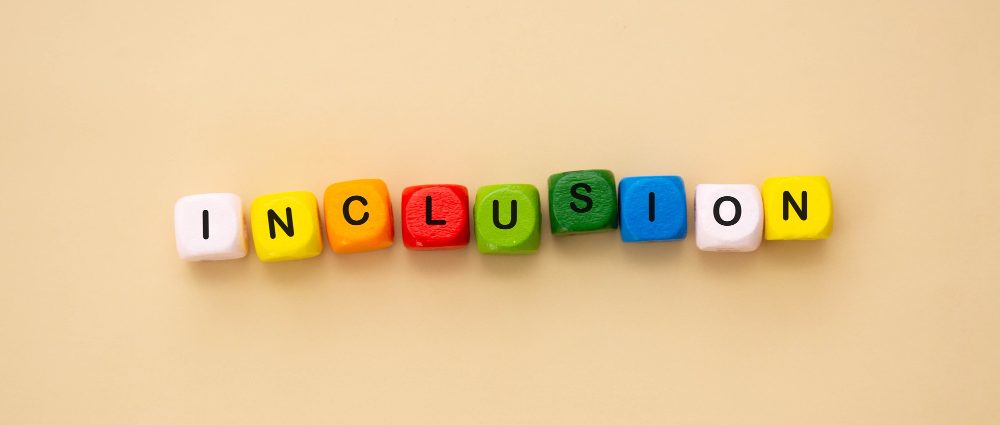Share this
There are numerous everyday words that people use which may inadvertently hurt the feelings of certain segments of the population. Take the word “blacklist” as an example. It is commonly used in daily language and in the technology sector. It refers to a list of items that are disallowed because they’re considered bad. Conversely, “whitelist” refers to a list of items allowed because they’re deemed good.
Instead of dismissing the consideration of these words as “woke,” let’s step back and think about this from a neutral standpoint. Is there any logical reasoning behind using the color “black” to signify something bad and “white” to signify something good? There are instances where white can be negative, such as the white spots on vegetables, and instances where black can be positive, like a blackout curtain that helps you sleep better.
The English language is rife with contrasting concepts of black and white, where white is often equated with being good and black with being bad. Terms like “white lie,” “whitewash,” “white knight,” and “white hat” all imply either good or an improvement. Meanwhile, “black market,” “black magic,” “black comedy,” and “black hat” denote negativity. Traditionally, “white” has been associated with purity and “black” with evil or twistedness. However, it’s important to consider the impact of these words on Black children. When used negatively, such terms perpetuate the mental association between “black” and “bad.” Is that justifiable when you want Black children to feel empowered and confident in themselves?
Educators and parents don’t have to continue using traditional language that perpetuates negative stereotypes or causes emotional harm (whether the harm is received consciously or subconsciously) when speaking with children. We ought to review and reflect commonly used words that educators should avoid in order to foster a more inclusive and thoughtful language.
The Importance of Inclusive Language

In today’s rapidly evolving society, fostering inclusivity and equity within educational settings is more important than ever. Inclusive language plays a crucial role in creating a safe and comfortable environment for all students, regardless of their background or identity. By consciously choosing words and avoiding terms that could reinforce social inequities, educators can help promote understanding, acceptance, and empathy among their students.
Using inclusive language benefits students on multiple levels: It aids emotional well-being, nurtures a sense of belonging in the classroom, and minimizes discrimination or exclusion. It fosters a safe space for all students, ensuring they feel valued and free from judgment or discrimination, regardless of their ethnicity, sexual orientation, or physical or mental characteristics. One study done in early childhood settings found that when teachers used non-inclusive language, it had a negative impact on children’s learning, socialization, and emotional wellbeing. According to the researchers, usage of inclusive language can be viewed as a motivational tool that teachers can use.
Words to Avoid and Why

Blacklist/Whitelist (or other black-and-white contrast words) – These terms inadvertently reinforce negative stereotypes associated with the color black and perpetuate the notion of white as preferable. Instead, use “denylist/allowlist” or “blocklist/safelist.”
Master/Slave – These words are reminders of the painful history of slavery, and using them in a casual context is insensitive. Opt for “primary/secondary” or “leader/follower” as alternatives.
Manpower – This term excludes women and non-binary individuals by implying that only men contribute to the workforce. Use “workforce” or “personnel” as substitutes.
Lame – Originally meant to describe someone with difficulty walking, using “lame” to describe something negative perpetuates ableism. Replace it with “uncool” or “ineffective.”
Retard/Retarded – This term is derogatory and offensive towards individuals with intellectual and developmental disabilities, diminishing their worth and abilities.
Ghetto – Using this term to describe people or their behaviors reinforces negative stereotypes associated with poverty and racial marginalization, perpetuating discrimination.
Gay (as an insult) – Using “gay” as a derogatory term contributes to a harmful stereotype and furthers the marginalization of LGBTQ+ individuals, who often face bullying and discrimination.
Man up / Be a man / Sissy – These phrases reinforce toxic masculinity and harmful gender stereotypes, suggesting that only men can be strong or courageous while simultaneously shaming individuals who don’t meet these expectations.
Illegals/Illegal aliens – Referring to undocumented immigrants as “illegals” or “illegal aliens” dehumanizes them and perpetuates negative assumptions and stigma about their character and intentions.
Oriental – This term is considered outdated and offensive when referring to people of East Asian descent, as it reinforces harmful stereotypes and exoticizes their culture and identity.
Gyp/Gypped – This term is derived from the word “Gypsy,” which is a racial slur towards Romani people, perpetuating discrimination and negative stereotypes associated with their community.
Indian giver – This phrase reinforces negative stereotypes about Native Americans or Indigenous people, portraying them as untrustworthy and unfairly taking back their generosity.
Crazy/Insane – Using these mental health-related terms as insults or descriptors perpetuates negative stereotypes and stigmatization of individuals with mental health disorders, furthering misunderstandings and discrimination.
Dumb/Deaf-mute – These words are offensive and harmful to individuals who are deaf or hard of hearing, perpetuating negative stereotypes and making it difficult for them to advocate for their own needs and rights.
Spirit animal – Using the term “spirit animal” as a casual expression appropriates Indigenous cultures and disrespects their spiritual beliefs, contributing to the ongoing marginalization and erasure of Indigenous people.
Feminazi – This term is offensive, as it unjustly compares advocates for women’s rights to Nazis, who committed mass genocide. Educators should not use this term, as it discourages open dialogue about gender equity.
Colored – This word can be seen as demeaning to people of color and harkens back to the era of segregation and racial discrimination in the United States. Educators should use more respectful terminology like “person of color.”
Thug – Often racially coded, this word perpetuates negative stereotypes about black men and implies that they are inherently violent or dangerous. Educators should avoid using this term to describe students or discuss social issues.
Tranny – This derogatory slang term is used to mock and belittle transgender people. Educators should use respectful language when discussing gender identity and avoid perpetuating transphobia.
Terrorist – This term should not be used to generalize or stereotype people from a specific ethnicity or religion. Educators should refrain from using this word in the classroom, as it can fuel stereotypes, discrimination, and fear.
Spaz – This term mocks people with disabilities or medical conditions, particularly those involving muscle control or mobility. Educators should avoid using ableist language and choose words that promote inclusion and respect.
Ethnic (when used inappropriately) – Used inappropriately, this term can perpetuate stereotypes and the idea of a “normative” culture or race. Educators should use specific, accurate language to describe racial and ethnic backgrounds without promoting an “us versus them” mentality.
Special Ed – Referring to individuals with disabilities as “special ed” students can be patronizing and overly general. Certainly, don’t use this word for students who simply perform tasks slowly. Educators should instead focus on specific accommodations and supports for students with disabilities.
Midget – This term is offensive to people with dwarfism, as it has historically been used to demean and objectify them. Educators should use respectful language like “person with dwarfism” or “short stature.”
Exotic (when used to describe a person) – Describing someone as “exotic” quickly falls into fetishization and othering based on ethnicity or appearance. Educators should focus on understanding and respecting the diverse cultural backgrounds and experiences in the classroom.
Actively Teaching Inclusivity and Equity

Creating an inclusive language environment in the classroom is vital, but it’s equally important to actively teach students about the significance of inclusivity and equity. When children are not educated about the negative impact that certain words can have on people, they often use them to stand out, attract their friends’ attention, or appear cool. We all know that children enjoy using “bad words” simply because they are labeled as bad. Often, children unknowingly use harmful words among their friends or to put down someone they dislike. This can cause genuine emotional distress for those targeted and perpetuate a culture that normalizes the negative connotations associated with these words.
For instance, when children are permitted to use the word “gay” as a derogatory term in their everyday conversations, they begin to associate homosexuality with deviance, uncoolness, and being “girl-like”. As more children use this word negatively, a culture emerges among them where homosexuality is ridiculed and laughed at.
Having grown up in the 1990s and early 2000s when words like “gay” and “queer” were frequently used with derogatory connotations, I am acutely aware of how swiftly children can be absorbed into a heteronormative culture within their peer groups. Educators must not merely leave the matter of social justice to the discretion of children. Instead, it is a subject that needs to be actively taught and addressed.
Here are some strategies educators can employ:
- Develop lesson plans that incorporate topics related to diversity, inclusivity, and social justice. Highlight the achievements of individuals from various backgrounds and discuss the challenges they faced.
- Take note of instances where a child uses harmful words, and address the issue with the child. Discuss the meaning behind these words and encourage the child to cultivate empathy by reflecting on how they would feel if someone directed hurtful words towards them.
- Encourage open dialogue about discrimination, privilege, and bias. Create a safe space for students to share their experiences and foster empathy among their peers.
- Offer activities that promote teamwork and collaboration, emphasizing the importance of valuing everyone’s input and celebrating different perspectives.
- Set a positive example by modeling inclusive language, immediately addressing instances of discriminatory language, and apologizing for any unintentional offenses. Do not use harmful words yourself as children will take it as an implicit approval to use such words.
By incorporating these practices into daily instruction, educators can take an active role in instilling the values of inclusivity and equity in their students from an early age, laying the groundwork for a more empathetic and compassionate future generation.
Richard Zhang, M.Ed., is an educator and a software developer with a Masters degree in education from University of Toronto and an immense passion for education and learning. Until the pandemic, Richard owned an award-winning learning centre in Toronto. For 15 years, he has taught and mentored hundreds of elementary, middle school, and high school students succeed in academics. He is also an app developer specializing in web and mobile application in educational and business sectors.



